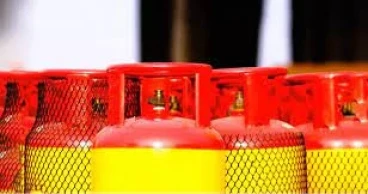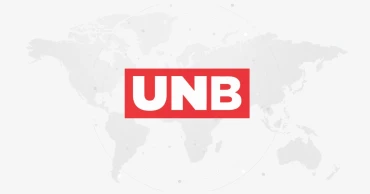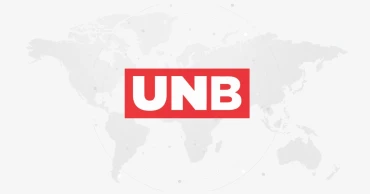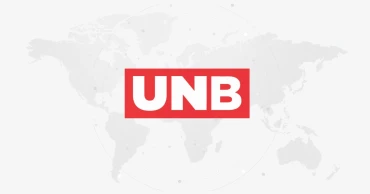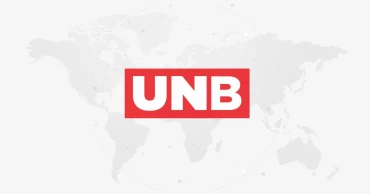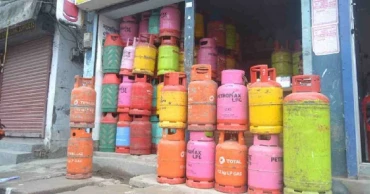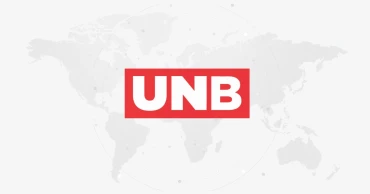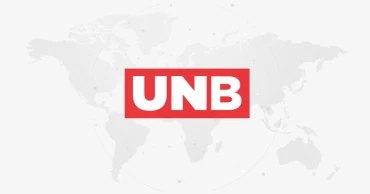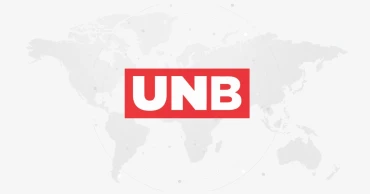Bangladesh Energy Regulatory Commission
Retailers flout LPG price cap, charge Tk 150–200 more despite BERC order
Even though the Bangladesh Energy Regulatory Commission (BERC) had set the price of a 12- kg LPG (liquefied petroleum gas) cylinder at Tk 1,364 for the month of July, many consumers in the capital were being forced to pay between Tk 1,500 and Tk 1,600 — well above the official rate.
The price discrepancy has sparked frustration among households and small businesses, who say they are being burdened with unjustified additional costs amid already mounting living expenses.
Talking to UNB, a resident of Uttara said, "I went to three different shops in my area, and no one was selling the cylinder for less than Tk 1,500. If the government fixes a price, why is it not being enforced? We, the common people, are suffering."
Fuel prices to remain unchanged in August
"We are the worst sufferers," said Kokhon, a restaurant owner, adding, "We use a lot of gas cylinders, but the prices are extremely high. Retailers always charge more than the price set by BERC — they don’t care about the official rate. It’s all controlled by a syndicate," he added.
Akhi Afrin, a housewife from Uttara’s Diabari, expressed similar frustration.
"This is not a luxury item. LPG is a basic necessity for cooking. If prices go up like this, how will we manage our household budget?" she said.
Surprisingly, many consumers remain unaware of the government-fixed LPG price.
When asked, several gave similar responses, UNB observed.
Climate change driving up grocery prices globally
Questioned about the inflated rates, Raju Ahmed, Assistant Director (Tariff-2) at BERC, said the market is currently under surveillance by the Directorate of National Consumers' Right Protection, in coordination with the respective Deputy Commissioners' (DC) offices.
In response to why prices remain inflated despite ongoing monitoring, Raju Ahmed told UNB, “It should not be the case, but if such irregularities are occurring, I will bring the matter to the attention of higher authorities.”
He urged consumers to lodge formal complaints with the Directorate, attaching valid receipts as evidence, so that appropriate action can be taken.
Retailers, however, claim they are not deliberately ignoring the government-set rate. Instead, they point to problems in the supply chain and alleged price irregularities at the wholesale level.
BERC reduces LPG, auto gas prices for July
"We're buying cylinders at higher rates from distributors — sometimes over Tk 1,450 per cylinder," said Jahidul Islam, an LPG retailer in Uttara.
"If we sell at BERC’s price, we’ll incur losses. We are being forced to charge higher just to stay in business," he said.
Another seller, requesting anonymity, said distributors themselves are not adhering to BERC prices.
"There is no proper monitoring, and small sellers like us are being blamed unfairly," he added.
He also mentioned that popular brands such as Beximco and Bashundhara are sold at higher rates due to their high demand.
Experts argue that the core issue lies in weak enforcement of BERC’s pricing directives.
"BERC may fix the prices, but without proper monitoring and a transparent distribution chain, consumers will never benefit," said an energy expert and consumer rights advocate.
"There needs to be strict action against those who are overcharging, including wholesalers," he said.
Faridpur farmers in distress as onion prices plummet
Consumers are now calling on the government to intervene and ensure LPG is sold at the regulated price. Many have urged BERC and the Ministry of Energy and Mineral Resources to conduct market inspections and hold both distributors and retailers accountable.
Until then, the gap between official pricing and real-world costs continues to weigh heavily on the average household.
7 months ago
LPG price hiked: Consumers to see increment from today
In an update from the Bangladesh Energy Regulatory Commission (BERC), the price of liquefied petroleum gas (LPG) has been adjusted upwards by Tk 0.66, setting the new rate at Tk 123.52 per kg, up from the previous Tk 122.86. This price change is effective from 6 pm on Sunday (March 03, 2024), indicating a slight increase in household and commercial expenses.
BERC, at a press briefing today, detailed the adjustment, noting that the price for a standard 12 kg LPG cylinder will now be Tk 1482, inclusive of VAT, marking an increase from the previous Tk 1474. This adjustment follows a rational scale across various LPG cylinder sizes, ranging from 5.5 kg to 45 kg, addressing the need for a proportional price revision across different consumer segments.
Read more: Gas shortage hits many areas in capital city
Furthermore, the price for “auto gas,” the LPG variant used in motor vehicles, has also seen a revision, now priced at Tk 68.05 per litre, including VAT, a slight increase from Tk 67.68. This adjustment reflects the broader impact of LPG price changes on transportation and related costs.
Notably, LPG prices marketed by the state-owned LP Gas Company will remain unchanged. This exception is attributed to its local production and the company’s minimal market share, which is less than 5 percent.
The decision to adjust LPG prices comes in the wake of rising costs in the international market, specifically tied to the increase in the Saudi CP (contract price), which serves as a benchmark for local operators importing LPG primarily from the Middle East.
Read more: LPG price hiked again; 12 kg cylinder to cost Tk 1433
2 years ago
Power generation capacity increased by almost 20% to cross 30,000MW in 2023
The country’s overall power generation, combining grid capacity and off-grid (mainly captive) power, increased by about 5000MW in 2023 to reach a new benchmark of 30,700MW, although with demand failing to keep up, this is expected to lead to higher capacity payments for the government.
This is disclosed in available data from the state-owned Bangladesh Power Development Board (BPDB), Bangladesh Energy Regulatory Commission (BERC) and Sustainable and Renewable Energy Development Authority (Sreda).
The BPDB data shows that of the 5000MW new power generation, some 3,343MW was added to the national grid by the import electricity from India and production from newly set up local power plants while about 1400MW came from off-grid captive and off-grid solar power.
Power, energy sectors are saddled with $5 billion outstanding payment amid dollar crisis: Sources
It also shows that the country’s installed grid-connected power generation capacity has reached to 25,951 MW on December 30 in 2023 from 22,608 MW in 2022 showing a capacity enhancement of 3343 MW.
Beyond the national grid, as per BERC data, the captive power generation has increased by 1379MW to reach 4760 MW in 2023 from 3,381MW in 2022.
The captive power plants were mainly set up by industries for their own consumption to get uninterrupted power supply as the grid power does not guarantee uninterrupted supply.
Govt approves import of 40 MW power from Nepal
Sources in the power sector said that despite more than 40 percent surplus power generation in the country, still many industries prefer to use their captive power for uninterrupted supply.
A huge number of applications remain pending with the Bangladesh Energy Regulatory Commission (BERC) to set up more captive plants.
The power generation from non-conventional, or renewable sources also witnessed an increase in 2023.
The Sustainable and Renewable Energy Development Authority (Sreda) statistics show that the solar power generation capacity reached 1200MW in 2023 from 700MW in 2022.
Of the 1200 MW, the off grid is 366.76 MW while ongrid is 601.02 MW. However, the country’s hydroelectric capacity of 230 MW is included in the Sreda statistics.
Together the new off-grid captive power and grid-connected power has pushed up the country’s total power generation capacity to 30,711 MW in 2023 from about 25,700 MW at the end of 2022.
BPDB officials said that the import of 1600 MW from the Adani Group’s plant for Bangladesh in Godda, Jharkhand, has played a major role in increasing the power generation capacity of the country.
Apart from the import, the commercial operations of a number of base-load power plants played a significant role in raising power generation capacity.
Read more: Power, energy sectors are saddled with $5 billion outstanding payment amid dollar crisis: Sources
These new power plants include 600 MW second unit of Rampal Power Plant, and 1200 MW Banshkhali power plant of S Alam Group. There is also a 200 MW Solar power plant in Khulna by Orion Group.
Although this capacity enhancement in power generation is a pleasing development on the face of it, especially given the country’s long history of struggle with power shortages, BPDB officials are also quick to point out that the growing surplus capacity would also lead to a rise in capacity payments, whereby IPPs get paid even for the electricity the government doesn’t need from them.
They said that the new power plants being added to the grid were set up by the IPPs, or independent power producers (the private sector firms investing in the power sector, by building and often operating the plants), and the BPDB has an obligation to purchase power from them - to not let their investment go to waste or end in loss. Having them exit the power sector due to losses would be a bigger blow to BPDB's long-term vision.
The increasing burden of capacity payments may pinch the government, as well as the consumer, harder if the dollar crisis prevailing in the country persists. According to the Centre for Policy Dialogue, a Dhaka-based think tank, capacity payments to private, rental, and quick rental power plants have increased from Tk 5,376 crores in FY2017 to as high as an estimated Tk 28,000 crores in FY 2023.
In 2024, surplus electricity generation capacity is projected to rise to 50 percent from the existing 40 percent, as the country’s peak hour demand is about 16,000 MW, according to a top BPDB official.
It would mean even at peak demand, half the plants would be surplus to requirements, and thus lie idle.
Read more: AL Pledges to Expand Modern Urban Facilities to Every Village in Smart Bangladesh
2 years ago
LPG price drops by Tk 13.42 per kg
Price of Liquefied Petroleum Gas (LPG) has slashed by Tk 13.42 per kg to Tk 89.48 from the previous price of Tk 102.9 for the month of June.
Bangladesh Energy Regulatory Commission (BERC) announced the new price, saying that a 12kg LPG cylinder’s price has reduced by Tk 161.
A retail consumer will get it now at Tk 1,074 instead of Tk 1235 (including VAT).Prices of other sizes of LPG cylinders – from 5.5kg to 45kg – will go down rationally, Md Nurul Amin, newly appointed chairman of BERC, said at a press briefing on Thursday at the BERC office in Dhaka.
The new prices will be effective from 6 pm today (June 1, 2023).
BERC officials said the LPG price witnessed a rise in the local market due to the decrease in the prices of Saudi CP (contract price).
Bangladeshi LPG operators normally import their products from the Middle-East market on the basis of Saudi CP.
Also read: 12-kg LPG price goes up by Tk 57 to Tk 1235
As per the BERC decision, the price of “auto gas” (LPG used for motor vehicles) also dropped to Tk 50.09 (including VAT) per litre from previous Tk 57.52, down by 7.43 per litre.
The price of LPG, marketed by state-owned LP Gas Company, will remain the same as it is locally produced with a market share of less than 5 percent.
LPG witnessed the highest price at Tk 1,498 (per 12kg cylinder) in the local market in February this year following the start of the Russia-Ukraine war in February last year.
2 years ago
LPG price slashed by Tk 6.33 per kg
Price of Liquefied Petroleum Gas (LPG) has decreased by Tk 6.33 per kg to Tk 118.54 from the previous price of Tk 124.85 per kg for the month of March.
Bangladesh Energy Regulatory Commission (BERC) announced its latest price through a press release on Thursday.
As per the new price, 12kg LPG cylinder cost has cut by Tk 76 as a retail consumer will get it at Tk 1,422 instead of previous price of Tk 1498 (including VAT).
LPG prices for other sizes of cylinders – from 5.5kg to 45kg – will go down rationally, said the BERC press release.
An official of the BERC said that the prices witnessed such fall due to a decline in the prices of Saudi CP (contract price).
Last month, as per the Saudi CP, the LPG price was $790 per metric ton while the current month’s CP was set at $733 per MT with increase by $57 per MT, he added.
Bangladeshi LPG operators normally import their products from Middle-East Market on the basis of Saudi CP.
As per the BERC decision, the price of “auto gas” (LPG used for motor vehicles) also decreased to Tk 66.22 per litre (including VAT) from previous Tk 69.71 per litre, down by Tk 3.49 per litre.
The new prices will be effective from 6 pm today (2 March, 2023).
Read more: 12kg LPG cylinder to cost Tk 46 more
The price of LPG, marketed by state-owned LP Gas Company, will remain the same as it is locally produced with a market share of less than 5 per cent.
The LPG price witnessed the highest price at Tk 1,498 (per 12kg cylinder), in the local market in February this year following the start of the Russia-Ukraine war in February last year.
Normally, the BERC Chairman announces the LPG price at the beginning of every month through a virtual press briefing.
This time, there was no press briefing as four members out of five including the BERC chairman recently retired from their jobs after expiry of their contracts with the government.
New chairman has not been appointed yet, said a BERC official.
3 years ago
BERC gets three members
Three members have been appointed at the Bangladesh Energy Regulatory Commission (BERC).
According to three separate notifications, issued by Energy and Mineral Resources Division, Helal Uddin, a former additional secretary who served as chairman of Sustainable and Renewable Energy Authority of Bangladesh (Sreda), former director general of Hydrogen Unit Abul Khair Md Aminur Rahman and Dr Md Yamin Chowdhury have been made its members.
Also Read: JS passes amendment to BERC Act amid opposition protests
On January 31, contract tenures of chairman and three members expired and the posts remained vacant.
Now only one member of the BERC, out of 5, is now serving.
3 years ago
12 kg LPG is being sold at Tk 1,600-Tk 1,800 instead of Tk 1498: DNCRP
Market monitoring teams of Directorate of National Consumer Right Protection (DNCRP) have found that 12 kg LPG is being sold at between Tk 1,600-Tk 1,800 in the market instead of Tk 1498, fixed by Bangladesh Energy Regulatory Commission (BERC).
The BERC fixes the price of LPG at the beginning of every month as per law.
“From LPG operating companies’ selling points to retailers’ selling points—everywhere the products are being sold at inflated prices”, said A.H.M. Shafiquzzaman, Director General (Additional Secretary) of the DNCRP while holding a meeting with LPG operators, dealers and retailers at the DNCRP headquarters in the city on Wednesday.
Against the allegation of the DNCRP, all the LPG operators, dealers and retailers were blaming each other.
In addition, the LPG operators were also blaming the dollar crisis, devaluation of local currency and banks’ reluctance in opening LC while the Consumers Association of Bangladesh (CAB) was blaming inaction of the BERC and DNCRP for anarchy in the LPG market.
“We have to pay banks Tk 106 as dollar exchange rate against the previous rate of Tk 85”, said Mahbub Alam of Meghna LPG.
He said the freight charge of shipping has gone up to$120 from $90 per tonne while costs of electricity and transportation have increased.
“All these have pushed up our production costs, but BERC is not considering such costs while it announces price every month”, said Jakaria Jalal, head of marketing of the Bashundhara LPG.
Representatives of dealers and retailers said that the BERC has not increased the margin of dealers despite all their costs having gone up.
BERC secretary Khalilur Rahman disagreed with the allegations of the LPG operators and dealers saying that the regulator has asked them for submitting valid documents of their cost escalation.
Read more: 12kg LPG cylinder cost declines by Tk 65
“But none of the dealers and LPG operators submitted the valid documents. Rather they sought more time in this regard”, he added, without any valid documents, BERC cannot consider their claims of cost escalations.
CAB representative Kazi Abdul Hannan said both the BERC and the DNCRP substantially failed to protect the rights of the consumers.
The consumers are being the ultimate victims and they are paying the price of the regulatory bodies’ failure, he added.
The Director General of the DNCRP said his office will submit a recommendation to the government’s higher authority to take further action in this regard.
He said it will be unwise to take action against companies like Bashundhara whose market share is over 20 percent.
“If we stop their production, do you know what will be the impact on the market?” he told a reporter responding to his question about the non-action by the DNCRP.
He also said that the ground reality is that the BERC raised the 12 kg LPG price by Tk 266 for the current month. But the price has gone up further in the local market.
“If again the LPG price is raised by Tk 300, the market will not be cool. Rather, market operators will raise it further. We experienced this in the case of sugar price”, he said.
3 years ago
LPG price goes up by Tk 22.15 per Kg, highest in 2 years
Price of Liquefied Petroleum Gas (LPG) has substantially increased by Tk 22.15 per kg to Tk 124.85 from the previous price of Tk 102.70 per kg for the month of February.
Bangladesh Energy Regulatory Commission (BERC) announced its latest price through a press release on Thursday.
As per the new price, 12kg LPG cylinder cost has increased by Tk 266 as a retail consumer will get it at Tk 1498 instead of previous price of Tk 1,232 including VAT.
LPG prices for other sizes of cylinders – from 5.5kg to 45kg – will go up rationally, said the BERC press release.
An official of the BERC said that the prices witnessed such an excessive rise due to huge increase in the prices of Saudi CP (contract price).
Last month, as per the Saudi CP, the LPG price was $599.59 per metric ton while the current month’s CP was set at $790 per MT with increase by $190.25 per MT, he added.
Bangladeshi LPG operators normally import their products from Middle-East Market on the basis of Saudi CP.
Read more: 12kg LPG cylinder cost declines by Tk 65
As per the BERC decision, the price of “auto gas” (LPG used for motor vehicles) also increased to Tk 69.71 per litre including VAT from previous Tk 57.41 per litre, up by Tk 12.3 per litre.
The new prices will be effective from 6 pm today (2 February, 2023).
The price of LPG, marketed by state-owned LP Gas Company, will remain the same as it is locally produced with a market share of less than 5 per cent.
The LPG price went up to Tk 1,439 (per 12kg cylinder), in the local market, following the start of the Russia-Ukraine war in February last year. But this month of February witnessed the highest price since Russia-Ukraine began.
Normally, the BERC Chairman announces the LPG price at the beginning of every month through a virtual press briefing.
this time, there was no press briefing as four members out of five including the BERC chairman recently retired from their jobs after expiry of their contracts with the government.New chairman and or any member for the regulatory body has not been appointed yet, said a BERC official.
3 years ago
12kg LPG cylinder cost declines by Tk 65
Price of liquified petroleum gas (LPG) has decreased by Tk 5.39 per kg to Tk 102.70 from previous price of Tk 108.09 per kg as Bangladesh Energy Regulatory Commission (BERC) has announced its latest price for the month of January.
As per the new price, 12kg LPG cylinder cost has lowered by Tk 65 as a retail consumer will get it at Tk 1232 instead of Tk 1297.
LPG prices for other sizes of cylinders – from 5.5kg to 45kg – will go down rationally, said BERC chairman Abdul Jalil, who announced the new prices at a virtual press briefing.
Read more: Industries can now use LPG as a reliable energy solution: Speakers
As per the announcement, the price of “auto gas” (LPG used for motor vehicles) also decreased to Tk 57.41 per litre from previous price of Tk 60.41 per litre, down by Tk 3 per litre.
The new prices will be effective from 6 pm today (January 2, 2023).
The price of LPG, marketed by state-owned LP Gas Company, will remain the same as it is locally produced with a market share of less than 5%.
Read more: 12kg LPG cylinder to cost Tk 46 more
The LPG price went up to the highest, Tk 1,439 (per 12kg cylinder), in the local market, following the start of the Russia-Ukraine war in February last year.
LPG price in Bangladesh was the lowest at Tk 1,225 for a 12kg cylinder in January last year and it witnessed continuous hikes in February, March and April in 2022.
3 years ago
Raising retail power tariff: 3 more distribution companies submit proposals
Three more state-owned distribution companies submitted their respective proposals to the Bangladesh Energy Regulatory Commission (BERC) on Thursday to raise power tariff at the retail level.
These distribution entities are: Dhaka Power Distribution Company Limited (DPDC), Dhaka Electric Supply Company Limited (DESCO), and West Zone Power Distribution Company Limited (WZPDCL).
BERC Member (tariff) Mohammad Bazlur Rahman confirmed submission of the power distribution entities’ proposals.
Official sources said there are six power distribution entities in the country and all were asked by the government to submit their respective proposals on retail power tariff hike as early as possible, following the announcement on the new bulk power tariff.
“The proposals are almost identical and submitted as per directives of the government,” a top official of the Power Division told UNB.
Earlier on Tuesday the state-owned Bangladesh Power Development Board (BPDB) had submitted its proposal to the energy regulator seeking Tk 1.47 hike per kilowatt hour (each unit) at the retail level.
BPDB wanted to raise the retail tariff by 19.44 percent, to Tk 9.03 per unit from the existing Tk 7.56 per unit.
Chiefs of the two remaining distribution entities — Bangladesh Rural Electrification Board (BREB) and Northern Electricity Supply Company PLS (NESCO) — will submit their respective proposals to BERC on Sunday.
“We’ve finalised our proposal on retail power tariff adjustment. We’ll submit it on Sunday”, said BREB chairman Mohammad Selim Uddin.
NESCO managing director Zakiul Islam informed of similar preparation and plan of his company.
Read more: BPDB submits retail power tariff adjustment proposal seeking a 19.44 percent hike
The retail power tariff proposal was placed by BPDB within the next day after the bulk power tariff was raised.
On Monday, BERC raised the bulk power tariff by 19.92 percent – to Tk 6.20 per kilowatt hour (each unit) from the previous Tk 5.17 – with effect from December 2022, disposing a review appeal of the BPDB.
As per the BERC Act 2003, after receiving any proposal from any power distribution entity on tariff adjustment, BERC will hold a public hearing to listen to the opinions of different stakeholders and then it will announce its decision within 90 days from the conclusion of the hearing procedures.
After the bulk tariff enhancement, State Minister for Power, Energy and Mineral Resources Nasrul Hamid said that right now, the bulk power tariff hike will have no impact on the masses.
He, however, said the government wants to ensure uninterrupted power supply to consumers. “That’s why power tariff adjustment was needed,” he added that the power distribution entities are preparing their proposals to submit to BERC – seeking a hike in the electricity tariff at retail level.
“BERC will examine whether it will have any impact on retail consumers in future,” he told reporters.
Read more: Bulk power tariff hike won’t affect retail consumers right now: Nasrul Hamid
Consumers Association of Bangladesh (CAB) ASM Shamsul Amal said that the rights group will present its opinion when the proposals come for public hearing.
The retail tariff was raised on a weighted average by 5.3 percent to Tk 7.13 from Tk 6.77 per unit (each kilowatt-hour) with effect from March 1, 2020.
3 years ago

